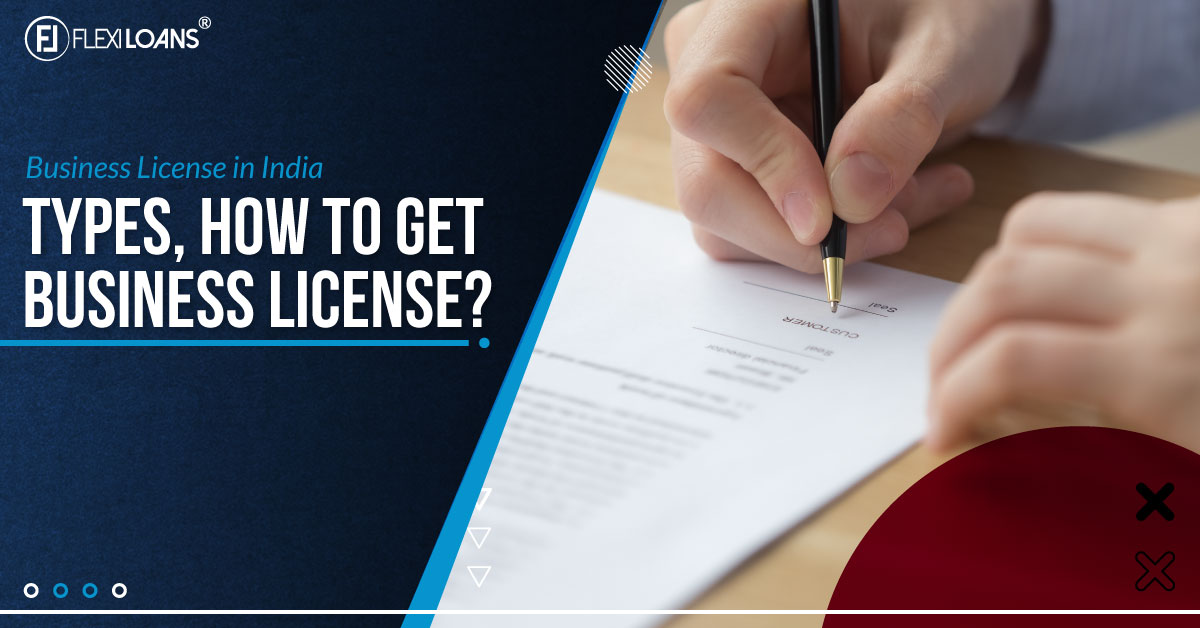Nov 15, 2021
Oct 17, 2025

Getting a license is essential for any business, whether a large corporation or a small business. Like any other country, businesses in India must obtain various business licenses and permits and renew them from time to time as required. However, getting a license may be complicated and confusing, especially for small businesses with limited resources.
The procedure to get a business license in India is different for different businesses depending on specific criteria such as the size of the business, type of the business, the sector, geographical jurisdiction, etc.
What is a Business License?
A business license is a legal document issued by government agencies that permit you to engage in a specific type of business activity per the juridical guidelines of the land in which the business is located.
What are the Benefits of Getting a Business License?
Getting a business license permits an entity to operate within the mandate of central and state regulations. Failing to obtain a license or renewing them in time may lead an entity to face a penalty, or worse, permanent termination of business.
Here are some benefits of obtaining a business license:
- Adherence to regulations also entails businesses getting access to various facilities, schemes, subsidies and support offered by the government of India or other organisations. Find out about the best business loans offered by the government of India.
- Another benefit is that businesses with licenses have a competitive edge over others during negotiation processes.
- A business license also instils faith in the business by the public and other stakeholders, holding businesses accountable for their actions.
How to Get Business License in India?
The business license obtaining procedure depends on the type of business, location, size etc. However, specific mandatory registrations that are common to most states are as follows:
Business Name Registration: It is advisable to get the business or brand name registered as early as possible to avoid copyright or other infringement issues later.
GST Registration: Entrepreneurs need to be informed about the different guidelines mentioned under the GST Act and get registration and other compliance as and when required.
State Business License: All business entities must obtain a trading license under state government regulations as and where necessary.
It is advisable to get expert and professional assistance with getting the right business license at the right time. This will help minimise the chances of penalty and error. Depending on the type, there is also a mandatory requirement of different permits while setting up a business.
Types of Business Licenses in India
The most popular types of business licenses in India can be categorised as follows:
Company License
The registration of companies and limited liability partnerships (LLPs) in India is regulated by the Ministry of Corporate Affairs. Registration as a company renders a perpetual existence, separate legal identity and limited liability protection for the business. After turnover increases beyond a certain limit, registration will help the business grow and expand systematically.
There are different forms of companies as per the Companies Act, 2013:
One Person Company (OPC): The concept of One Person Company registration was introduced in 2013, and it allows a sole proprietor to register their business and legally carry on their business operations.
Private Limited Company (PLC): Such a company prefers to restrict shareholders within specific groups.
Public Limited Company (PLC): A public limited company is different from a private limited company because it may invite the general public to invest in its company as shareholders without any specific preference for any particular group.
GST Registration
Business entities that fall above the specified threshold limit of turnover and businesses with intrastate supply are required to register under Goods and Services Tax. Several additional criteria require businesses to register under GST compulsorily. GST registration must be done online within a predetermined time period for new businesses. Find a checklist of documents to register a business under GST.
Registration under Udyam
The Udyam online portal manages the registration for small businesses in India. While registration under Udyam is not mandatory, there are many benefits associated with registration, such as government loan schemes, subsidies, etc. The eligibility conditions for Udyam registration are defined in terms of composite criteria of investment in plants and machinery and turnover of the business. Find out in detail about the small business registration process.
FSSAI License or Registration
The Food Safety and Standard Authority of India (FSSAI) is the regulatory authority to ensure the safety and standardisation of food products in India. All retail stores, trade outlets, kiosks, selling food items, restaurants, caterers, cloud kitchens are required to abide by and obtain license and registration under FSSAI and renew them from time to time. The licensing or registration requirement is categorised as follows:
- FSSAI Basic Registration: For turnover up to Rs 12 lakh
- FSSAI State License: For turnover between Rs 12 lakh and Rs 20 crore
- FSSAI Central License: For turnover more than Rs 20 crore
Find out details on FSSAI registration.
Import Export Code
In India, export and import businesses require a special license known as the Import Export Code, which the Directorate General of Foreign Trade issues under the Ministry of Commerce. The registration can be obtained online at the DGFT website by submitting the mandatorily required documents. The necessary documents are a PAN card, identity card with address proof, business residence proof, current bank account proof, etc.
Licenses Required to Open a Retail Store in India
For opening a retail store in India, a license must be obtained under “Shop and Establishments Act”. The registration is issued under the state governments, and therefore, the guidelines differ from state to state in India. The Act regulates all shops and commercial establishments in the area and monitors business conduct to check child labour, working hours, working conditions, wage policies, etc.
Trade License for Online Business in India
With many easy online business loans available for MSMEs, many small entrepreneurs are looking toward the virtual medium as a preferred business mode. For small businesses, a sole proprietorship is the most convenient way to run a business as fewer compliances are followed. A sole proprietorship can obtain a trading license in the same manner as a traditional shop under the Shop and Establishments Act.
Licenses Required for Factory in India
For running a factory in India, registration must be mandatorily obtained under Factories Act, 1948, which the state government grants. There may be an additional requirement of permits as per the type of business and the state regulations under safety, welfare and labour measures.
Other Licenses and Registrations
There are many more additional types of businesses that are not covered in the above list. To ensure public and environmental welfare, the government mandates licensing and permits wherever it is deemed necessary. For example, insurance providers are regulated by the Insurance Regulatory and Development Authority, and the Reserve Bank of India regulates the banking and microfinance sectors.
Eligibility
The basic eligibility requirements for applying for a business license:
- The applicant should not be a minor, i.e., must be at least eighteen years old.
- The applicant must not be under any legal probation for a serious offence.
- The business should be legal.
Documents Required
The documentary requirement may be different for different types of authorities and types of businesses. However, the following is a general checklist of documents required for the registration process:
- Pan Card
- Driving License/Voter ID/Aadhaar Card
- Passport
- Bank statement
- An Address proof or a no-objection certificate from the landlord
- Rent Agreement or Lease Agreement
- Authority Letter of Business
- Memorandum Of Association and Article of Association.
- Partnership Deed
FAQs
A business license and a permit are different. A business license confirms that your business has complied with the state’s rules and regulations, while permits usually ensure the business follows safety and precautionary measures.
You can obtain a business license by visiting the premises or website of the state regulatory authority where the business is located.
Company License
GST Registration
Small Business Registration
FSSAI License or Registration
Import Export Code
Licenses Required to Open a Retail Store in India
Trade License for Online Business in India
Licenses Required for Factory in India
The business may be penalized or even asked to shut down by the regulating authority in cases of non-compliance.







